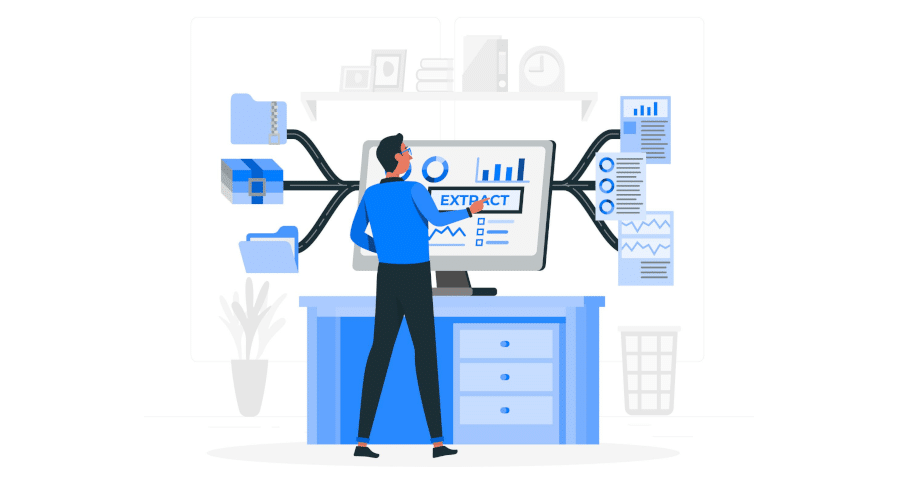In the age of Big Data and ever-increasing data volumes, modern businesses need efficient data management more than ever. That's where GCP's data catalog comes in. So what is it? Why use it? How does it work? That's what we're going to look at in this article.
What is the Google Cloud Platform Data Catalog?
The GCP data catalog is a metadata management service belonging to Dataplex. As a reminder, metadata is data about data. The idea is to give context to the various datasets available by answering the questions: Who? Who? Where? How? Why?
This makes it easier for organizations to identify the data they need.
Why use the GCP data catalog?
GCP’s data catalog is an integral part of efficient data management for companies. There are several reasons for this.
Data quality
The Google data catalog is part of the implementation of data governance. The idea is to guarantee the reliability and relevance of the information available by defining a framework.
To this end, data governance establishes an entire process for data cleansing, transformation, updating, searching, ownership and so on. And for each stage of this process, data experts need several tools. One of these is the data catalog.
Centralized management of data resources
The GCP data catalog brings together all the organization’s data. No matter where it comes from: data lakes, data warehouses, websites, third-party services and so on. As a result, employees don’t have to go back and forth to find the information they need. Instead, they simply consult the data catalog.
By defining a common vocabulary, decompartmentalizing data and providing a centralized location, the Google Cloud data catalog facilitates collaboration between different members of an organization (even if they’re not in the same department or region).
Data search and discovery
With ever-growing volumes of data, it’s often difficult to find the right information at the right time. Indeed, users don’t necessarily know where the data is located, or where it comes from, or even what it’s used for, for lack of adequate documentation. This is precisely where the GCP data catalog comes in.
Good to know: Dataplex integrates the artificial intelligence and machine learning functionalities of the Google Cloud Platform (GCP). This makes it possible to automate all data management processes: from discovery to data collection and lifecycle management, right through to data traceability. In so doing, the Google data catalog optimizes research and reduces management costs.

Saving time
Without effective data management, data analysts (or other data users) have to keep asking data engineers to provide them with the relevant information. But this work is extremely time-consuming, and companies rarely have sufficient resources at their disposal. Fortunately, the data catalog makes it easy to set up self-service data. This means that every user can access the required information directly, without having to go through an intermediary.
A fully managed and scalable catalog
GCP’s data catalog is the perfect answer to all your needs, whatever the volume of data available or the number of users.
Ultimately, this metadata management service helps companies get more value out of their data. Because data is better organized, employees can more easily find the information they need. And that means better decision-making. And faster, too, since data can be accessed more easily by all employees.
What are the features of the GCP data catalog?
Data organization and classification
The primary objective of the GCP data catalog is to facilitate the organization and classification of data. To achieve this, companies can define metadata to provide context and facilitate searches.
The GCP data catalog manages two types of metadata:
- Technical metadata: for example, metadata associated with a Big Query table. In this case, the metadata includes several attributes, such as project name and ID, resource labels, table
- and view descriptions, etc.
Commercial metadata: includes tags, administrators and rich text.
Integration with Google Cloud Platform services
As a Google Cloud Platform service, the data catalog integrates seamlessly with other GCP services. It automatically retrieves information from a multitude of GCP services. These include:
- Big Query ;
- Dataflow ;
- Pub/Sub ;
- Cloud storage ;
- Analytics Hub ;
- Dataproc Metastore;
- Dataplex services (data lakes, zones, tables and file sets).
But also data from other services via APIs, such as Hive, Oracle, SQL server, Teradata, Redshift, MySQL, PostgreSQL, Looker or Tableau.
Data security and compliance
In addition to facilitating access to data, GCP’s data catalog also ensures that users are provided with compliant data. The platform manages data access by controlling access authorizations and monitoring data activity. It then distributes data ownership according to each user’s access rights.
In addition to controlling access authorizations, GCP ensures that data use complies with current regulations, such as the RGPD.
And because data is centralized within the data catalog, it’s easier to ensure overall security.
Join DataScientest to optimize data management
GCP’s data catalog is one of the essential tools for effective data management. But it’s not the only one. Data engineers and data analysts have a multitude of solutions for organizing data and optimizing its value. Would you like to find out more? Join DataScientest! As well as learning the essential tools, you’ll also learn the right working methods to better manage your data and help organizations make better decisions.











